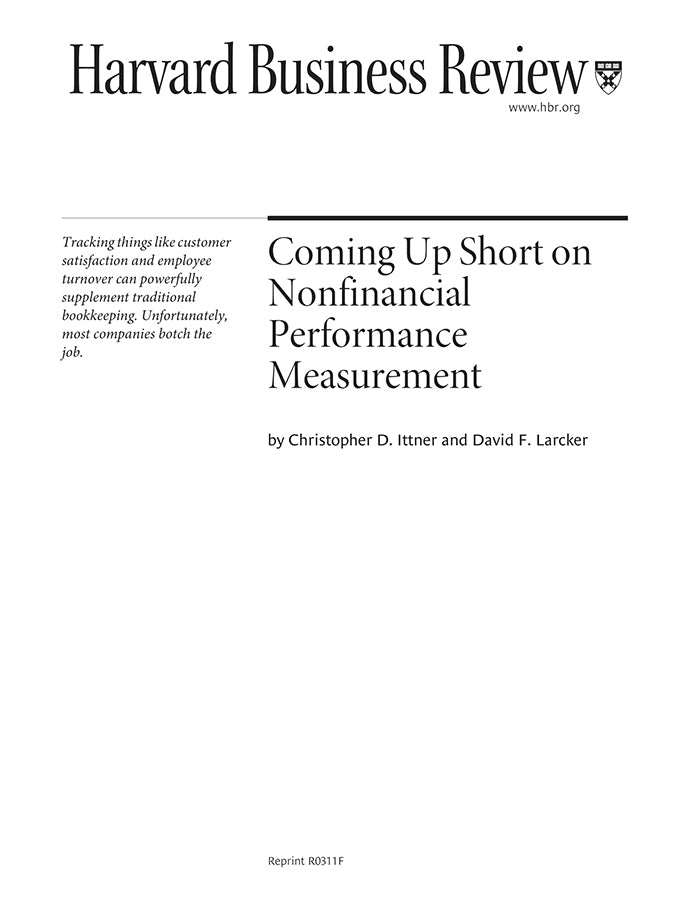Coming Up Short on Nonfinancial Performance Measurement
受取状況を読み込めませんでした
Increasingly, companies are measuring customer loyalty, employee satisfaction, and other nonfinancial areas of performance that they believe affect profitability. But they've failed to relate these measures to their strategic goals or establish a connection between activities undertaken and financial outcomes achieved. Failure to make such connections has led many companies to misdirect their investments and reward ineffective managers. Extensive field research now shows that businesses make some common mistakes when choosing, analyzing, and acting on their nonfinancial measures. Among these mistakes: They set the wrong performance targets because they focus too much on short-term financial results, and they use metrics that lack strong statistical validity and reliability. As a result, the companies can't demonstrate that improvements in nonfinancial measures actually affect their financial results. The authors lay out a series of steps that allow companies to realize the genuine promise of nonfinancial performance measures. First, develop a model that proposes a causal relationship between the chosen nonfinancial drivers of strategic success and specific outcomes. Next, take careful inventory of all the data within your company. Then use established statistical methods for validating the assumed relationships and continue to test the model as market conditions evolve. Finally, base action plans on analysis of your findings, and determine whether those plans and their investments actually produce the desired results.
【書誌情報】
ページ数:12ページ
サイズ:A4
商品番号:HBSP-R0311F
発行日:2003/11/1
登録日:2012/3/28


